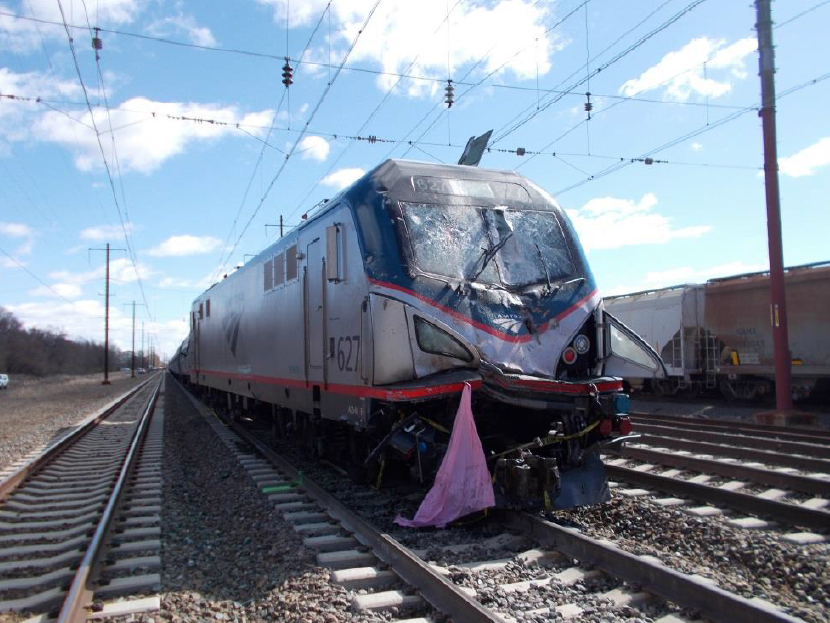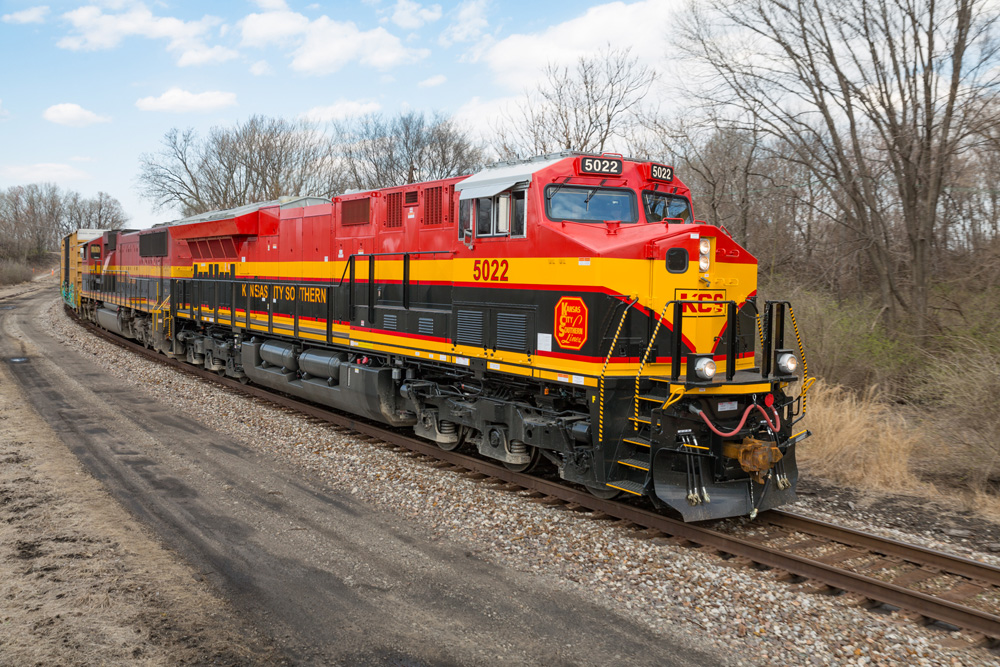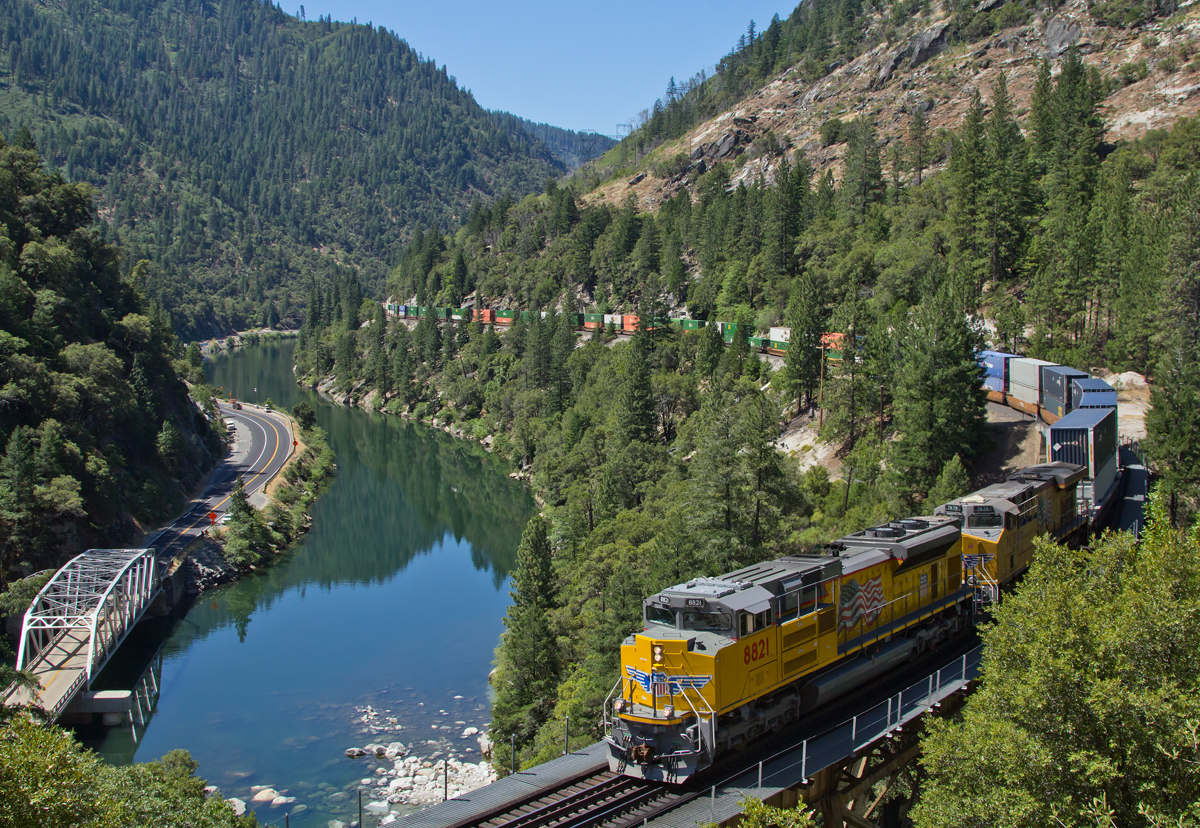Two track workers were killed and 41 passengers were injured when train No. 89, the southbound Palmetto, struck the backhoe near Chester, Pa., on April 3, 2016. In a subsequent drug test, the locomotive engineer tested positive for marijuana, while drugs were also found to be in the system of both workers who were killed.
Interviews with maintenance supervisors suggest confusion at a shift change over the work crew’s permission to do work that would impede, or foul, active adjacent tracks, along with permission to take one of the line’s four main tracks out of service. The incoming day-shift foreman received his Form D permission to take track 2 out-of-service in a phone call to the dispatcher at 7:26 a.m., while the outgoing night-shift foreman cancelled his own Form D, as well as his permissions to temporarily foul the other tracks, in a phone call to the dispatcher at 7:28 a.m.
The dispatcher on duty said he expected a call “within seconds, if not a minute” from the day-shift foreman requesting to pick those “fouls,” as the permissions are known, but in the interim, the dispatcher maintained his option to use the other tracks.
“But the next time I heard from [the day foreman] was right after the impact,” the dispatcher said, “when he called and asked me, ‘Did Robinson [the night foreman] give up his foul?’ I said, ‘Yes, he did,’ and he told me it’s bad out here, ‘We need an ambulance.’ And based on his anxiety in his voice, I kind of knew 89 hit something.”
That was at 7:50 a.m., after the train struck the backhoe, sitting on track 3.
The train was going 106 mph when the engineer realized the backhoe was fouling the track, but even with an emergency brake application, the train was still going 88 mph when hit it the tractor, destroying it, derailing the ACS-64 locomotive and sending tractor debris into the first coach. Along with the locomotive, four cars of the 10-car train were damaged, at a total cost of $2.5 million, according to Amtrak’s estimate.
Thursday’s release of the documents precedes the NTSB’s full report on the accident, and will provide the basis for the conclusions as to cause of the accident.















Anyone who thinks the “drug use” played a part is a moron.
Day foreman has an absolute, affirmative *duty* to a) verify with dispatcher that fouls are in place and b) apply track shunt to drop signals. If all facts in article are correct, this looks like involuntary manslaughter account gross negligence, and he should go to jail.
(W Cook: Track 2 was taken out of service at 7:26am; the train was on Track 3. The dispatcher did nothing wrong).
If one believes what Bill Maher says about weed. Be grateful that he doesn’t work for Amtrak.
Amtrak should make the pot head employees pay for the damage they caused. It boarders on criminality!
Amtrak needs to clean up their employees use of drugs. There is no place for this on a railroad.
This probably could have been avoided if the foremen had used radio communications instead of cell phones. The day foreman would have heard that the night foreman had released his fouls and would have known to request them for his shift. The engineer of the oncoming train would have been aware of the whole situation. Too much digital age.
For the benefit of the two previous posts…..My understanding of this article, was that Day-shift Foreman “only” requested Track 2 to be out of service, “not” the intermittent fouls of adjacent tracks. The Dispatcher is not at fault here, he is not responsible for what type of maintenance work is being done on the railroad, and what advanced clearances are needed for that work.
Why does Amtrak’s General Manager and Engineering office allow the schedule of 110 MPH train on the adjacent track of a program under-cutter job with the need of the backhoe fouling that live adjacent track? Most railroads would schedule a slow order, such as 45 mph, passing those men working on that job. Why were there no random drug test of those employees who now show up using cocaine? The engineer is no longer with Amtrak. And the track shunt were required to be applied to drop all signals on the track the backhoe was fouling, and were not being use as a practice, overlooked by supervision. The timing in this report must be wrong. The way it is written, if correct, the dispatcher should be in jail for killing those men by putting a train down a track which he issued a foul order to the foreman at 7:26 AM.
From reading paragraph 3, I understand that the oncoming day foreman requested a foul at 7:26 A.M. and that the outgoing night foreman requested that his nightime foul be lifted at 7:28 A.M., 2 minutes later. So, did the dispatcher process these requests in the order received, thus causing the day foreman’s foul request to be canceled by the night foreman’s foul lift request, received 2 minutes later?
Understand that I’m not a “rail”, so, maybe, I’m not following the process. Interestingly, in paragraph 4, the dispatcher seems to think that the day foreman didn’t request a foul at all. I’m assuming that by saying “pick a foul”, means requesting one. I’m also assuming that a Form D is a type of permission.
I hope Amtrak has zero tolerance for illicit drugs. The fate of the engineer that tested positive for marijuana has not been revealed. Perhaps he is now a former Amtrak engineer.
What’s with all the drug use?
So what is being changed to ensure this never happens again? Like, GPS sensors on all ROW workers so dispatchers know who is where. Not hard to do.
James: If the day foreman did not call to keep the fouls, the expected reason is that he didn’t need them in the immediate future. Dispatchers usually have more than enough to do keeping their territories fluid, between running trains and probably other track forces in the morning queue seeking their own occupancy permissions. They don’t have time to babysit.
The dispatcher had no reason to do otherwise until the day supe actually called him. Read carefully; the nite supe cancelled his fouls to the DS. If the day guy assumed otherwise, he should NOT have.
So, did the day foreman assume the night foreman would not cancel his “fouls” or did the day foreman forget to make the phone call to keep the “fouls?” And, why was the dispatcher laissez-faire when he didn’t hear back from the day foreman?